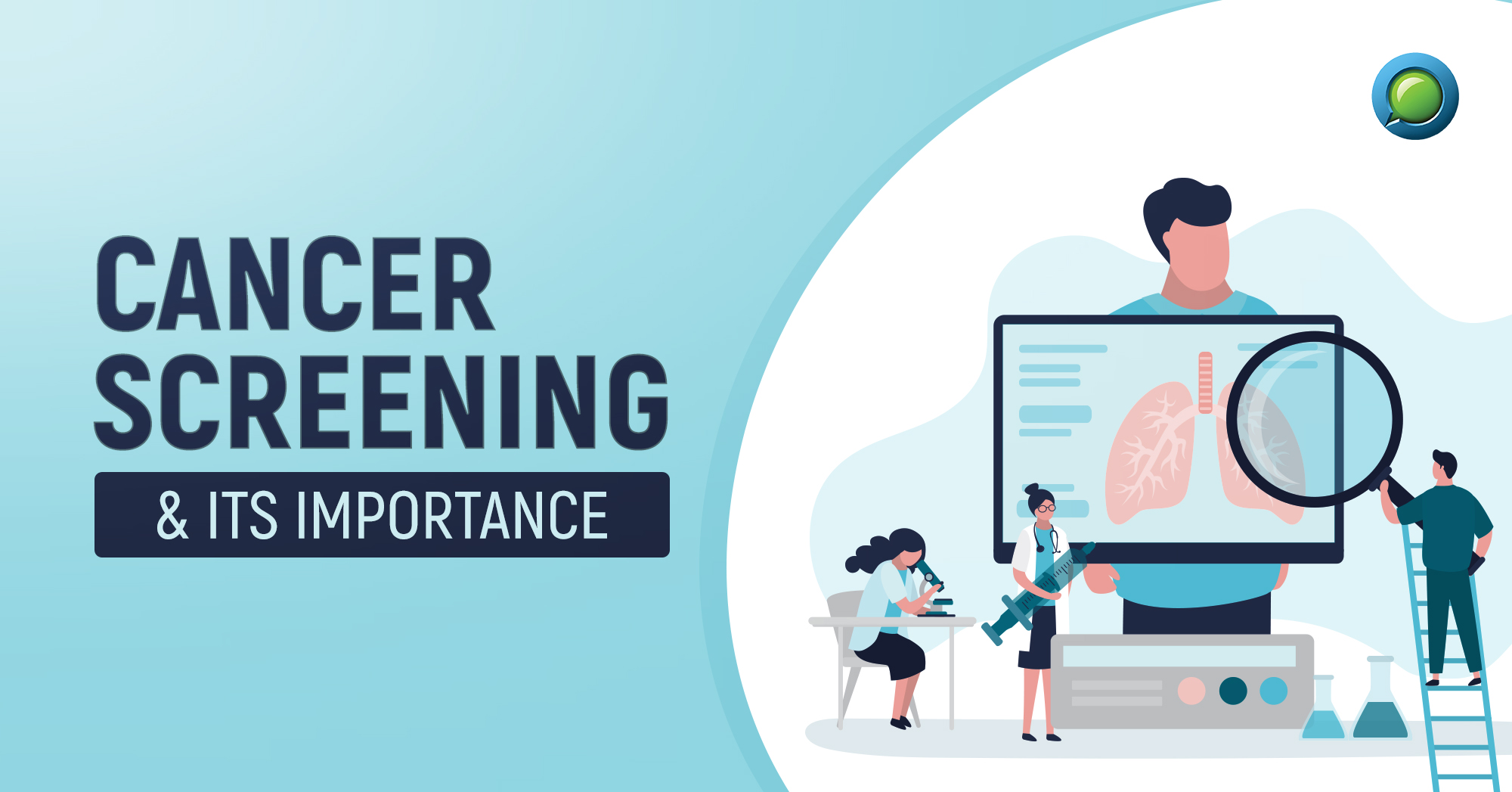Rising Burden of Cancer in India
As per WHO, 1 in 10 Indians develop cancer and 1 in 15 succumb to the disease. The top 6 cancers in men and women account for approximately 49% of new cancer cases. These can be prevented, or cured if detected early through screening.
Top 3 Cancers in Indian Women
- Breast cancer
- Cervix cancer
- Ovarian cancer
Top 3 cancers in Indian Men
- Oral cancer
- Lung cancer
- Stomach cancer
Cancer screening – A ray of Hope…
Cancer screening tries to find early signs of cancer (precancerous conditions) before the appearance of actual symptoms. This gives the doctors a fighting chance to treat cancer before it causes significant damage.
Who should be screened?
Screening is performed in a healthy and asymptomatic population. It is especially effective in people who are at a higher risk for developing cancer (for example, a strong family history or history of heavy smoking). It is usually done through self-examination, clinical examination by a doctor, and/or using specific tests.
Tests for Screening
The tests are designed in such a way that they can detect cancer at an early stage. Each type of cancer has a specific set of screening tests. [Table 1]
Routine tests include
- Self-Examination: Regular breast examination to look for localised swelling (lumps), skin examination to look for a change in mole or pigmentation.
- Examination by a Doctor at the clinic:
- Complete oral examination.
- Breast, skin & gynaecological examination.
- Digital rectal examination
- Procedures performed by the doctor like colonoscopy and sigmoidoscopy
- Lab tests: May include blood tests, cancer markers, urine test, tissue samples, stool test.
- Radiology tests: May include mammography, ultrasound, CT scan or MRI scan
- Genetic tests: Help in identifying genetic mutations and predict the chance of getting cancer in the future.
| Tests | Cancer | Recommendations | |
|---|---|---|---|
| Age group | Frequency | ||
Pap smear, Human papillomavirus (HPV) testing |
Cervical | From 21 to 65 | Every 3 years |
| Self-examination | Breast | >20 yrs | Monthly [3 to 5 days after the period starts] |
| Mammography,Breast MRI in genetically susceptible | Breast | > 40 years & postmenopausal women | Annual |
| Colonoscopy, sigmoidoscopy & fecal occult blood test | Colorectal | Ages 50 - 75 | Every 5 to 10 years |
| Dermatological check | Melanoma | 35–75 years | Annual |
| Prostate Specific Antigen (PSA) | Prostate | All Men | 2 to 3 years |
| Computed tomography [CT] | Lung | Ages 55 to 74 in High risk [heavy smokers, Strong family History] | Annual |
| Alpha-fetoprotein blood test, Ultrasound | Liver | High risk [Cirrhosis, hemochromatosis, chronic hepatitis B] | Every 6 months |
Pros and Cons of cancer screening:
Benefits
- Early detection of abnormalities and consequent early intervention
- Certain screening tests [Colonoscopy for colon cancer, mammography for breast cancer, and Pap smear for cervical cancer] have been shown to reduce the death rates in developed countries.
- Improved quality of life and increased Life expectancy
- Cervical cancer is completely preventable and curable if detected by screening using the Pap smear.
- Colonoscopy can easily find out abnormal growths [polyps] inside the colon or rectum and are then removed before they turn cancerous.
- Early intervention in aggressive cancers [such as Lung Ca] prolongs life and helps to avoid extensive surgery [mastectomy in breast Ca].
Risks
- False-positive results on screening may increase the anxiety/fear in person even when there is no cancer
- Overdiagnosis & Overtreatment: Some lesion or growth would not have harmed a person during their lifetime, yet they receive painful, expensive, and stressful treatment
- Injury: Certain Invasive test such as biopsy may cause injury [perforation], bleeding, or infection
- False reassurance: Sometimes, screening does not suggest cancer in a person, although they have it, giving a false sense of security and treatment is denied
Your life is precious. If you have a strong family history of cancer, talk to a doctor at DocOnline for guidance on cancer screening and risk factors to low your odds of getting cancer.













